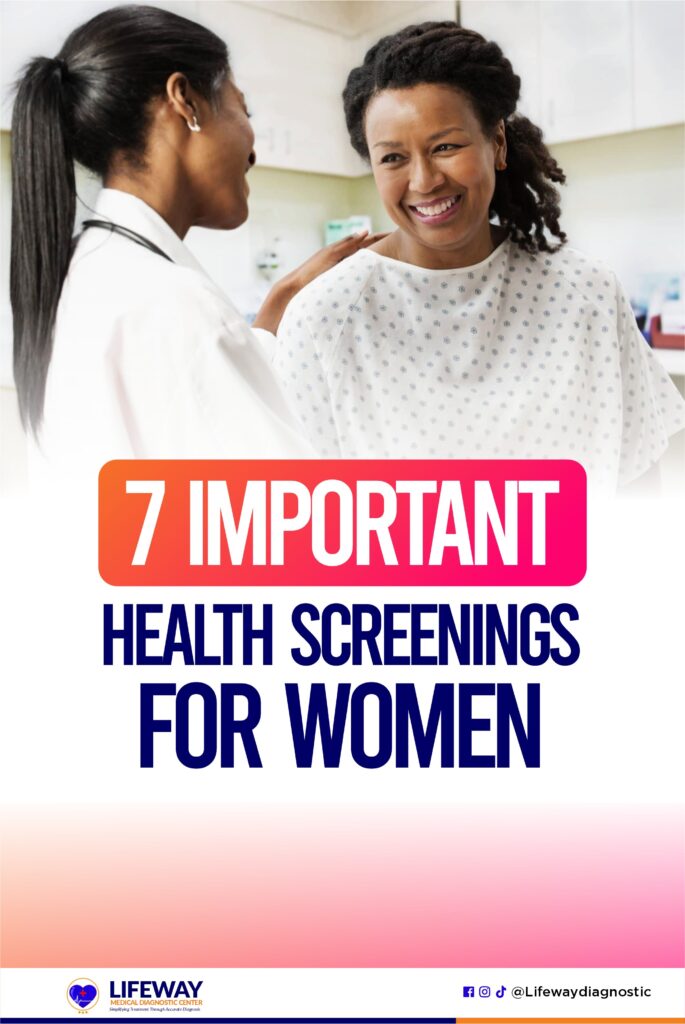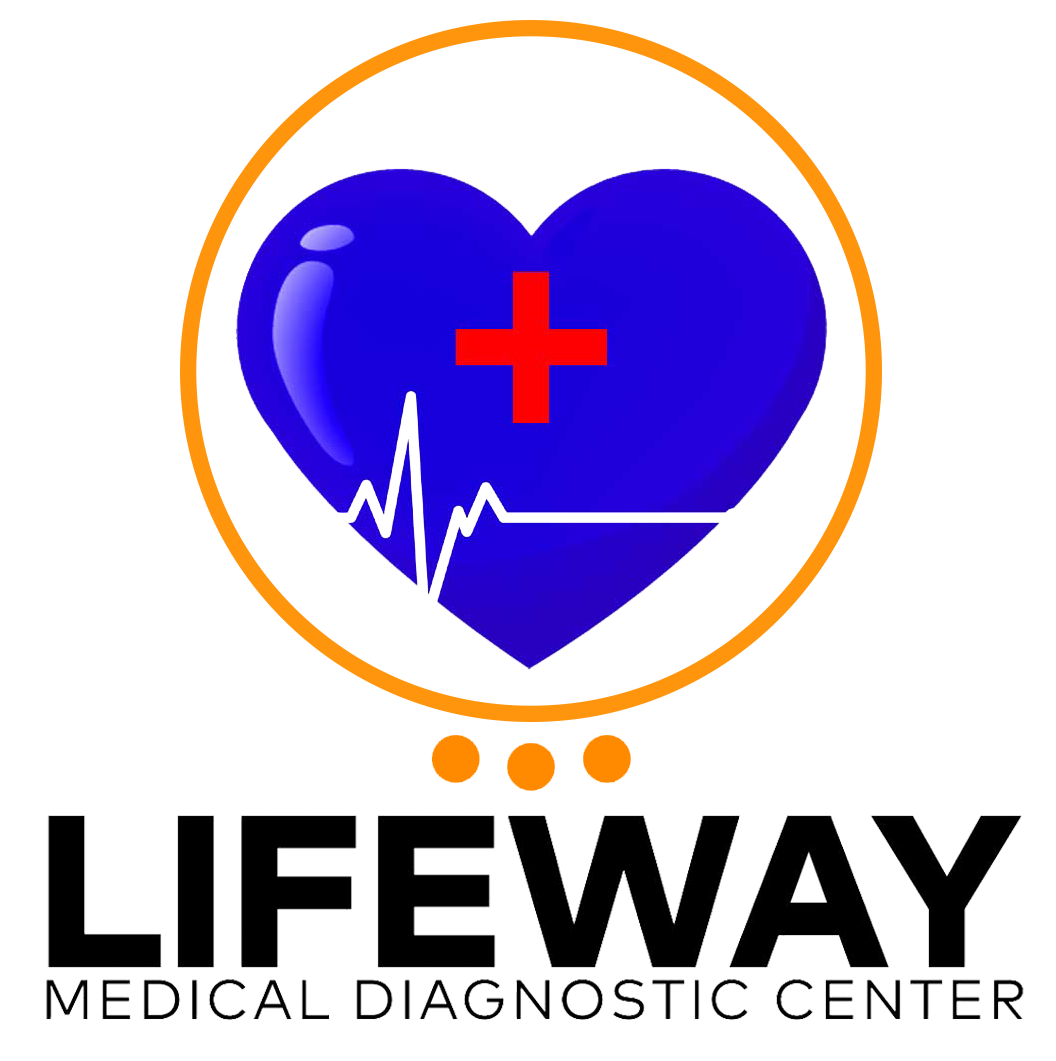Many women ignore their health and only go to screenings when they notice a symptom. There are various health screenings for women that can help address any potential health concerns in women at their earliest stages.

Health screenings for women assist in the early detection of common health conditions women face. This aids in prompt medical intervention and effective management.
This article will help women make necessary changes to their lifestyle based on their medical history. Continue reading…
7 Important Health Screenings for Women
Women of all ages should undergo these most important health screenings to ensure sound health.
1. Mammogram (screening for breast cancer)
The first health screening for women on our list is a mammogram, which plays an important role in the early detection of breast cancer.
This screening test uses X-rays to create images of the breast tissue. It effectively identifies small lumps that are not detectable through physical examination.
Mammography recommendations for women of various ages:
- Women 30-39: High risk, start mammography
- Women 40-50: Annual mammography
- Women 50-74: Mammography every 2 years
- Women over 60: Mammography every 2 years
2. Pap smear test (screening for cervical cancer)
A pap smear, otherwise called a pap test, is a screening test for cervical cancer.
It is used to detect abnormal cell changes in the cervix. The cervix is the opening between the vagina and the uterus.
Doctors recommend that all women over 21 get a Pap smear test, regardless of their sexual history. Furthermore, doctors advise women to get this Pap smear test done every three years.
Women aged 30 to 65 have three testing options: pap and HPV co-testing done every five years, pap tests done every three years, and HPV tests alone done once every five years.
3. Blood tests
There are many blood test screenings women have to undergo. Some of the common ones include:
a) Complete blood count (CBC) or full blood count:
This blood test measures hemoglobin levels, white and red blood cell counts, and platelet counts. CBC can help detect infections, anemia, and other conditions.
b) Blood glucose test
This test measures the amount of glucose, i.e., sugar in the blood. Glucose is an important source of energy for the body, but high levels of glucose in the blood can be a symptom of diabetes or other health problems.
The blood glucose test is done in several ways;
- Random Blood Glucose Test: It measures your blood glucose level at any time of the day, regardless of when you last ate. It can help diagnose diabetes or monitor glucose levels in people with diabetes.
- The fasting Blood Glucose Test: This measures the blood glucose level after you have fasted for 8-12 hours. It can help diagnose diabetes or prediabetes.
- The HbA1c Test: This test is a three-month average blood glucose indicator that helps diagnose and monitor diabetes.
c. Lipid profile/cholesterol test
A cholesterol test is a blood test that measures the levels of high-density lipoprotein (HDL), low-density lipoprotein (LDL), total cholesterol, triglycerides, and very-low-density lipoprotein (VLDL), which are important markers for your cardiovascular health.
d. Liver function test
A liver function test is used to check the levels of liver enzymes and proteins in the blood. They help diagnose liver diseases like hepatitis and cirrhosis. They also monitor liver functions in people with liver conditions.
Some liver tests include Alanine Aminotransferase (ALT), Aspartate Aminotransferase (AST), Alkaline Phosphatase (ALP), Total Bilirubin, Albumin, and Prothrombin Time (PT).
e. Renal function test
This blood test is used to diagnose kidney diseases and monitor kidney function in people with known kidney conditions.
Some renal function tests you can go for are creatinine, sodium, calcium, chloride, potassium, glomerular filtration rate (GFR), and blood urea nitrogen (BUN).
4. Urinalysis (Urine analysis)
Urinalysis, or urine analysis, is used to screen for various medical conditions, including urinary tract infections, kidney disease, diabetes, and liver problems.
These are some of the things evaluated in a urine analysis test:
- Color and clarity
- pH level
- Specific gravity
- Protein levels
- Glucose levels
- Ketone level
- Nitrite levels
- Leukocyte levels
- Bilirubin levels
- Urobilinogen levels
- Red and white blood cell counts
- Bacteria or other microorganisms
5. Blood pressure test
A blood pressure test is one of the most important health screenings for women. This test determines if the blood pressure is normal, high, or low. High blood pressure is a key risk factor for cardiovascular diseases such as stroke, heart disease, and kidney disease.
Blood pressure (BP) test results express the measurements as two numbers, with the systolic pressure listed first and the diastolic pressure listed second. Doctors consider normal blood pressure to be less than 120/80 mmHg. They define high blood pressure as a reading of 130/80 mmHg or higher.
Every woman should check her blood pressure often. If you have diabetes, heart disease, kidney problems, or are overweight, you’ll need to check your blood
pressure more often.
6. Bone density test
A bone density scan is a method used to measure calcium and other minerals in the bones. The test uses low-intensity X-ray beams.
Doctors advise women over 65 years old to undergo this bone density scan once every two years. However, women over 65 with no risk of accelerated bone loss can perform the test every 3 to 5 years.
7. Colon cancer screening
This health screening test is for cancer of the colon and rectum. Every woman who is up to 45 years of age or older should go for a colon cancer screening every ten years.
Colonoscopy is the most preferred colorectal cancer screening because it allows for both the detection and removal of abnormal growths.
Doctors recommend that women 45 and older undergo a sigmoidoscopy, which examines the lower colon and rectum, every 5 years.
Occult blood tests and colonography are additional screening options.
Conclusion
The key is for women to have regular check-ups and screenings as recommended by their healthcare providers to detect any potential health issues early.
This article has outlined the important health screenings every woman should be aware of and undergo frequently. Remember, health is wealth!
Visit a reputable diagnostic center near you to get tested today!
